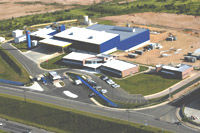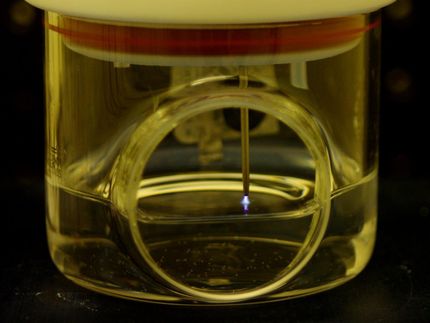New Scientific Research Underscores Economic And Environmental Benefits Of Monsanto's Biotech Cotton
Advertisement
Two new comprehensive studies by leading global agricultural economists demonstrate that Monsanto's biotech cotton provides significant economic advantages for growers and important benefits to the environment, including significantly reducing the use of synthetic chemical insecticides.
The two analyses will be presented this week at the National Cotton Council's Beltwide Cotton Conference in Anaheim, Calif. The studies demonstrate the benefits of biotechnology throughout the world.
"This is a case where you have very clear and demonstrable benefits - both to the farmer and to the environment," said Graciela Elena, Ingeniera Agronoma of the Instituto Nacional de Technologia Agropecuaria (INTA), an agricultural research and extension institute based in Argentina.
Biotech cotton contains a gene from Bacillus thuringiensis (Bt), a common soil microbe, allowing it to naturally protect itself against insect pests, thereby requiring fewer applications of chemical insecticides. Monsanto produces insect-protected cotton under the trade name Bollgard. Monsanto also produces Roundup Ready cotton, which is developed through biotechnology to be tolerant to Roundup herbicide.
In her research, Elena found that in the leading cotton-growing regions of Argentina, biotech cotton required almost 64 percent fewer applications of insecticide when compared to its conventional counterpart.
A second study by Dr. Nicholas Kalaitzandonakes, Associate Professor of Agribusiness at the University of Missouri also demonstrated that U.S. cotton farmers have embraced quickly biotech cotton because of significant reductions in the amount of insecticide required in their cotton crops. Importantly, the studies found that adoption of biotech cotton encourages the adoption of conservation tillage practices, which reduce soil loses in agriculture and can reduce water pollution.
"There is a trend emerging that shows biotech crops, especially cotton, significantly reduce the amount of chemical insecticides that must be sprayed to control insect pests," said Dr. Kalaitzandonakes. "At the same time, half of the acres planted with Roundup Ready cotton are converted into conservation tillage acres, leading to further environmental benefits. These are very tangible benefits to everyone who cares for a sustainable landscape and clean water resources."
The trend of reduced pesticide use in cotton as a result of biotechnology is likely to continue. A recently released independent study by the New Jersey-based consulting company, Kline & Company called "Biotech 2009 Business Analysis," indicates that biotech cotton will reduce the use of insecticides by 30 percent in the next nine years, from 11.9 million pounds in 2000 to 8.3 million pounds in 2009.
The research presented at the Beltwide Cotton Conference supports many of the conclusions of the initial survey studies done when Bt cotton was introduced. In a 1999 study, the National Center for Food and Agricultural Policy (NCFAP) estimated that 2 million less pounds of chemical insecticides were used to control cotton bollworms and budworms in six key cotton-producing states during the 1998 growing season, compared to the insecticide levels used prior to the introduction of Bt cotton.
"When you reduce the amount of insecticide growers are using to control pests, you are able to reduce their input costs," said Dave Rhylander, Director of Marketing for the South for Monsanto. "Additionally, the insect control afforded by biotech cotton boosts overall yields, creating a distinct economic advantage for cotton growers using biotechnology."
In Argentina, Elena's research showed that the average cotton grower had a $65 per hectare advantage (approximately $26 per acre) using biotech cotton versus conventional cotton. Similar economic advantages have been found in the United States from the use of biotech cotton.

































































